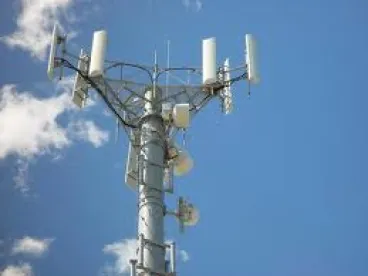In 2003, the FCC changed the local radio market definition for rated markets under its ownership rules from the contour-overlap methodology to the Arbitron Metro geographic market. The FCC defined the radio market for ownership limitations to consist of the radio stations, including non-commercial stations, that Arbitron (now Nielsen) regards as “home” to the market. This FCC radio market definition for ownership limitation purposes has now survived three reviews by the U.S. Court of Appeals.
Nielsen recently changed its policies to report only for subscribing stations the combined audience estimates for stations that are 100% simulcast, a practice known as Total Line Reporting. Gary Burns of 3 Daughters Media in the Roanoke-Lynchburg market recently wrote to the FCC imploring it to either prevent Nielsen from engaging in subscriber-only Total Line Reporting, or to make changes in how the FCC defines the radio market for ownership rule purposes.
Stripped to its essence, Mr. Burns’ complaint appears to be that, while he owns simulcasting stations, he is not a Nielsen subscriber and therefore his stations are not included in the new Total Line Reporting. Mr. Burns states that “[u]nder this new Nielsen policy only clients of Nielsen will be able to dictate how many stations an entity can actually own.” Mr. Burns, however, fails to substantiate this claim.
Under the procedures for counting the number of radio stations in a market, the FCC relies upon data compiled by the DC-area media consulting firm of BIA/Kelsey to compile listings of the radio stations that Nielsen counts as “home” to the market. The Nielsen audience estimates for each station, whether combined or separately reported, are neither a part of this BIA/Kelsey listing nor a factor in whether a station is counted by Nielsen within a particular rated market. Thus, even with Nielsen changing Total Line Reporting policies, it unclear what is Mr. Burns’ complaint with the FCC’s method of counting the number of stations in rated markets.
Several years ago, Mr. Burns waged an FCC battle on radio market definitions by filing a petition to deny and subsequent appeals against a competitor’s acquisition of an additional FM station in the Roanoke-Lynchburg market (full disclosure — I represented the seller in that transaction). Mr. Burns’ Roanoke-Lynchburg market protestations to the FCC were denied in an August 22, 2013 Letter Decision denying his petition to deny, in a November 14, 2013 Letter Decision granting in part and denying in part his petition for reconsideration, and the FCC’s September 17, 2015 Memorandum Opinion and Order granting in part, dismissing in part, and otherwise denying his application for review.
It is noteworthy that Mr. Burns’ Total Line Reporting complaint letter to the FCC may have been sent just hours prior to the FCC adopting its latest ownership rulings which reportedly will make few changes to any of the broadcast station ownership restrictions. As I speculated several months ago in “Court Chides FCC For Not Doing Its Job,” the next stop in the lumbering ownership rules never-ending story may be the U.S. Court of Appeals which, as noted in “Flashback: Garziglia Predicted FCC Would Punt,” may not take a kind stance to the FCC’s sparse rule modifications.
But, with all of the commotion that may be about to arise over the FCC’s imminent broadcast station ownership rules actions or non-actions, it is almost assured that none of the ruckus will be directed at the issue of the Commission’s radio market definitions. Indeed, the use of Arbitron (now Nielsen) markets as the basis for counting the number of stations was vigorously challenged in the 2004 U.S. Court of Appeals decision known as Prometheus I . The court stated in Prometheus I that the “Commission’s decision to replace contour-overlap methodology with Arbitron Metro markets was ‘in the public interest’ [and] a rational exercise of rulemaking authority”.
Mr. Burns’ letter, while provocative for Nielsen non-subscribers, says nothing that is likely to persuade the FCC to reopen the very settled FCC radio market definition issue.



 />i
/>i

